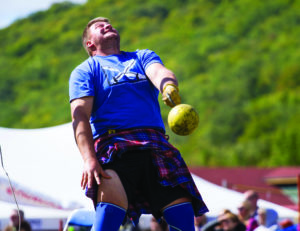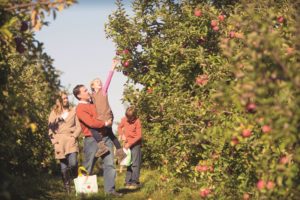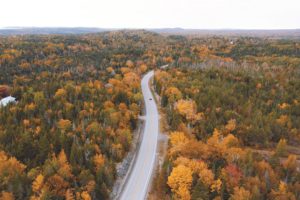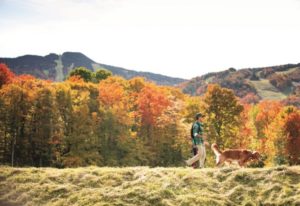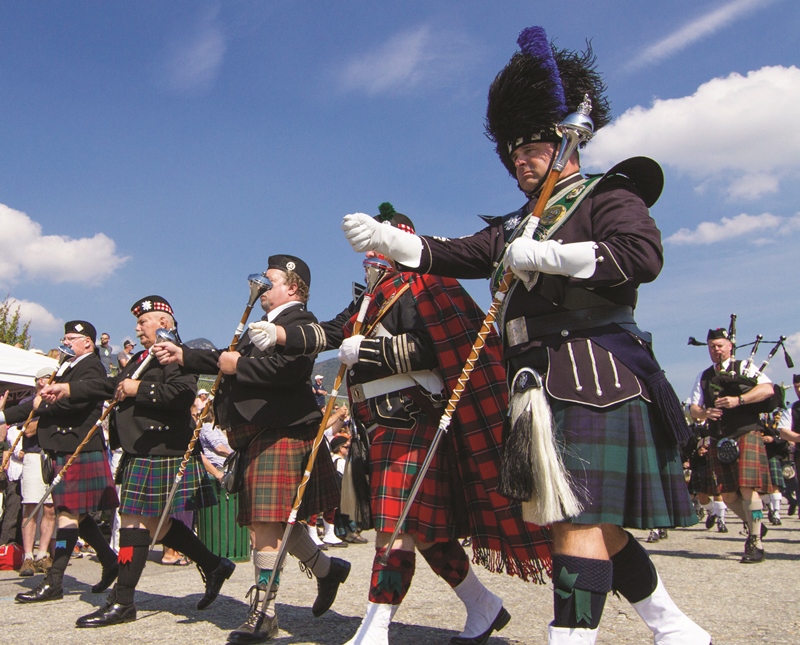
A family picnic gone wild. What else could explain how a simple gathering of the Murrays, who invited a pipe band to their first official reunion at Loon Mountain back in 1975, could turn into a three-day festival drawing 35,000 people each year in what has become the largest celebration of Scottish culture in North America.
“They said, ‘This is so much fun we need to do it next year.’ And they invited new bands,” explained Terri Wiltse, executive director of the New Hampshire Highland Games & Festival, which was held for the 44th time Sept. 20-22 at Loon. “It’s a fun time for everyone. I think everyone is Scottish for the weekend.”
Andrew Noyse, vice president of guest services at Loon, was first introduced to the Highland Games when he started working at the resort in 1985. “I remember seeing a bunch of people in kilts and a lot of activity going on with bagpipes, athletic events and music,” Noyse recalled of his indoctrination 34 years ago. “It’s what I would call a happy event. Everyone was having a good time. And that’s what I like about it today, too.”
For most employees at Loon in the fall, it’s all hands on deck when the festival is in town. The resort operates some 50 shuttles during the weekend, as most event parking is off-site. Loon also runs a couple of lifts for guests, including its gondola, as well as operating food tents and providing other support throughout the weekend. The workload makes it difficult for Loon employees to experience the festival as most of the visitors do, but Noyse says it pays dividends in so many ways.
